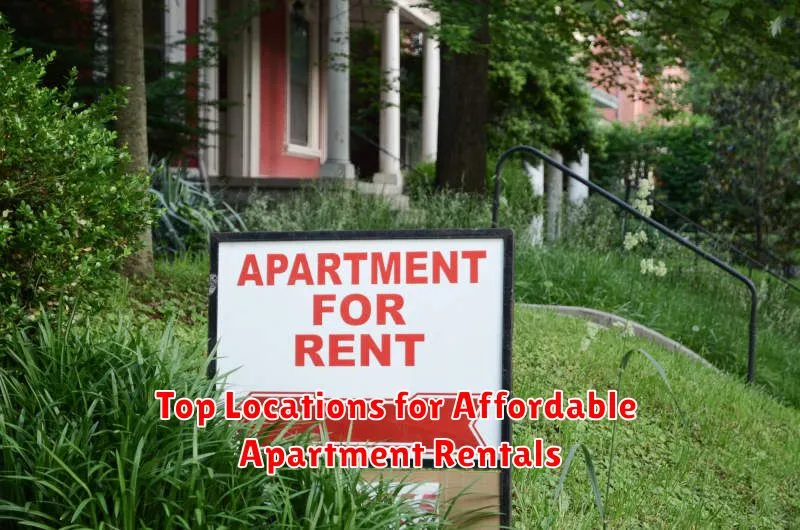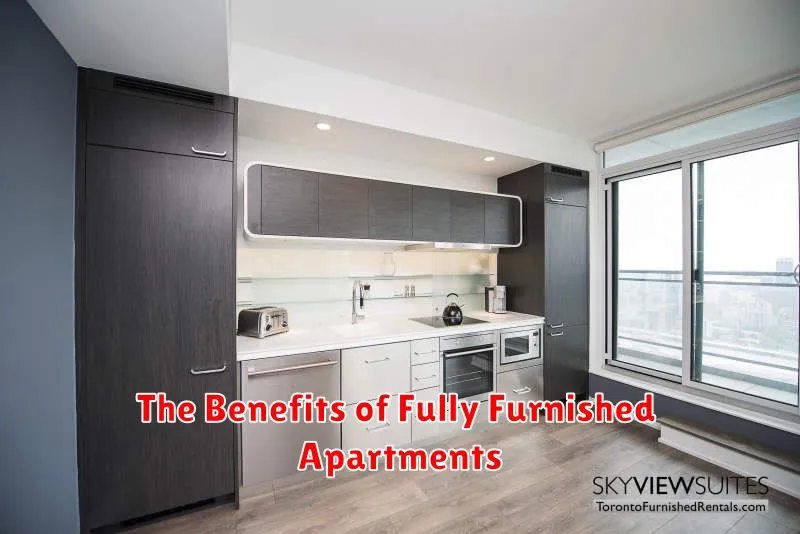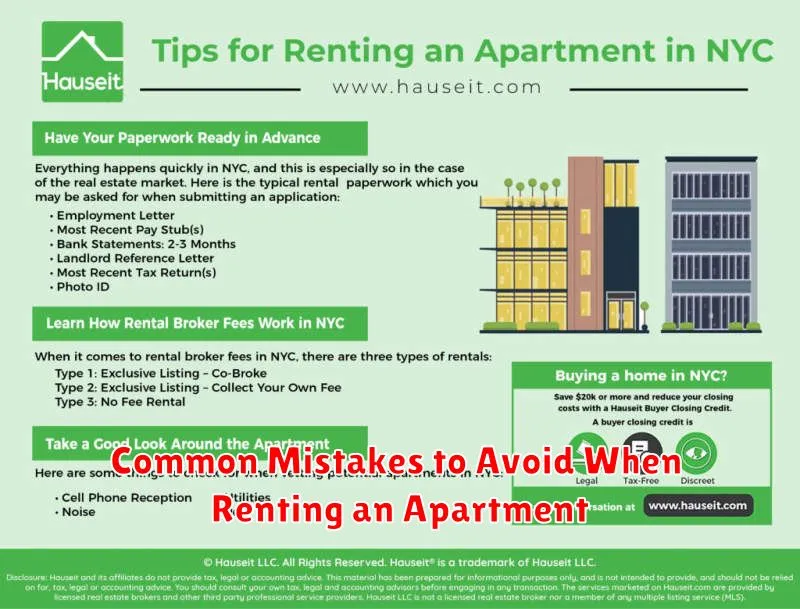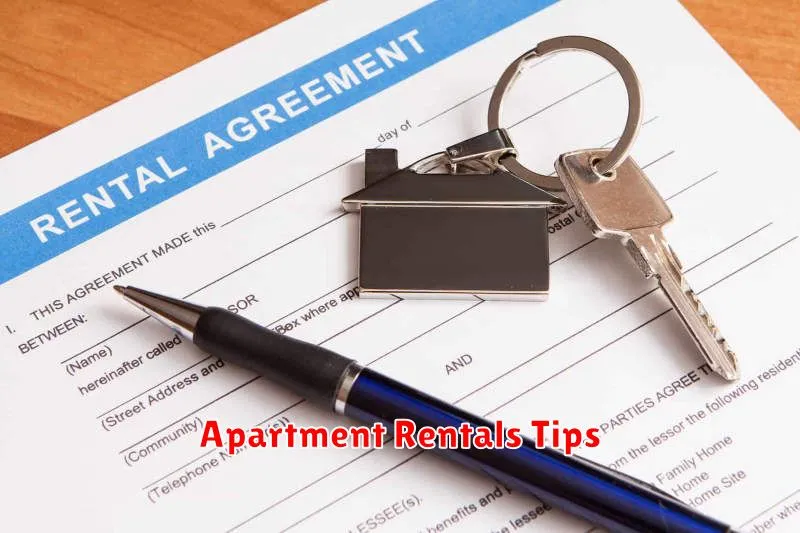Finding the perfect apartment can feel like a never-ending quest, but don’t despair! This article provides top 10 tips for finding the best apartment rentals, guiding you through the process of securing your dream space. Whether you’re a first-time renter or a seasoned pro, our expert advice will help you navigate the apartment search, negotiate the best rental rates, and ultimately find the ideal apartment that fits your budget and lifestyle. Prepare to conquer the apartment hunting game with our proven strategies and actionable tips for landing your perfect rental property!
How to Choose the Perfect Apartment for Your Needs
Finding the perfect apartment can feel overwhelming, but focusing on your needs simplifies the process. Start by defining your budget. Knowing your maximum rent allows you to filter options effectively.
Next, consider your location. Proximity to work, schools, transportation, and amenities significantly impacts your daily life. Think about your commute time and access to essential services.
Apartment size and layout are key considerations. Determine the number of bedrooms and bathrooms you require, and think about the space you need for your belongings and lifestyle. Does an open-plan living area appeal to you, or do you prefer separate rooms?
Amenities can greatly enhance your living experience. Consider features like in-unit laundry, parking, a gym, or a swimming pool. Prioritize the amenities that are most important to you and your budget.
Finally, don’t forget to thoroughly research the apartment complex and its management company. Check online reviews, ask questions about maintenance policies, and understand the lease terms before signing any agreement. Choosing the right apartment is a significant decision; careful consideration ensures you find a place you’ll love.
Top Locations for Affordable Apartment Rentals

Finding an affordable apartment can feel like a treasure hunt, but with some research, you can uncover great deals. Location is key to keeping costs down. Consider areas slightly outside major city centers or in up-and-coming neighborhoods. These areas often offer lower rents while still providing convenient access to work and amenities.
Smaller cities and towns frequently boast lower average rental costs than bustling metropolises. Researching less densely populated areas near your desired employment location could significantly reduce your housing expenses. This strategy offers a quieter lifestyle alongside financial benefits.
Look for areas with a stronger renter population. High demand tends to drive up prices, so areas with a more balanced mix of renters and homeowners might be more likely to offer competitive rental rates. Websites and local real estate agents can help you assess the renter-owner ratio in different neighborhoods.
Don’t overlook the transportation infrastructure. Living further from the city center can save money on rent, but factor in commute costs. Areas with good public transportation options or easy access to major highways can help you save money on fuel and parking.
Finally, consider state and local laws. Some states and cities have rent control regulations, which can cap rental increases. Understanding local laws can help you find areas with naturally lower and more stable rental rates. Remember to thoroughly research the local market to find the best fit for your budget and lifestyle.
Questions to Ask Before Renting an Apartment
Finding the perfect apartment can be exciting, but it’s crucial to ask the right questions before signing a lease. Don’t let enthusiasm cloud your judgment! Thorough inquiry safeguards you from potential headaches down the line.
Lease terms: What is the length of the lease? Are there any penalties for breaking the lease early? What are the renewal terms? Understanding these key details upfront is paramount.
Rent and utilities: What is the total monthly rent? What utilities are included (water, gas, electricity, trash)? Are there any additional fees (parking, pet fees, etc.)? Knowing the complete cost breakdown prevents unexpected expenses.
Building amenities and rules: Are there any amenities included (pool, gym, laundry)? What are the building’s rules and regulations (pets, guests, noise levels)? Confirming these aspects ensures the apartment aligns with your lifestyle and preferences.
Safety and security: What security measures are in place (security cameras, door locks, on-site management)? Is there a history of crime in the area? Prioritizing your safety and security is non-negotiable.
Maintenance and repairs: How are maintenance requests handled? Who is responsible for repairs (tenant or landlord)? What is the process for submitting a request? A clear understanding of this ensures timely responses to any maintenance needs.
Parking: Is parking included? If not, what are the parking options and costs? Addressing parking needs early prevents future inconvenience and additional expense.
Neighborhood: What are the nearby amenities (grocery stores, public transportation, parks)? Is the neighborhood safe and quiet? Researching the surrounding area is crucial for a positive living experience.
Asking these questions empowers you to make an informed decision, ensuring a smooth and satisfying rental experience. Remember, it’s always better to be well-prepared than to regret your choice later.
The Benefits of Fully Furnished Apartments

Choosing a fully furnished apartment offers several key advantages. First, it significantly reduces the upfront costs associated with moving. You won’t need to purchase large furniture items like sofas, beds, or dining tables, saving you a considerable amount of money and time.
Secondly, furnished apartments provide immediate convenience. You can move in with minimal effort, bringing only your personal belongings. This is especially beneficial for those relocating to a new city or country, or those with limited time to set up a new home.
Third, a furnished apartment offers predictable monthly expenses. You’ll know exactly what your rent will cover, without unexpected costs associated with purchasing furniture or appliances. This can aid in better budget planning and financial management.
Finally, fully furnished apartments often offer a more streamlined and stylish living space. The furniture is typically chosen to complement the apartment’s design, providing a cohesive and aesthetically pleasing environment.
How to Compare Rental Prices Effectively
Comparing rental prices can be tricky, but with a systematic approach, you can find the best deal. Start by standardizing the information. Don’t just look at the advertised price; consider the included utilities (water, trash, electricity). Some listings might include these, while others don’t, significantly impacting the true cost.
Next, account for lease terms. A shorter lease might offer a lower monthly rent, but a longer lease could provide more stability and potentially a lower overall cost. Always calculate the total cost over the lease period for a fair comparison.
Location plays a crucial role. While a seemingly cheaper apartment might be appealing, factor in the costs of commuting, shopping, and entertainment. A slightly more expensive apartment in a convenient location could save you money in the long run.
Finally, consider hidden fees. Application fees, security deposits, pet fees, and parking fees can add up quickly. Make sure to factor all these costs into your overall budget to get a true picture of the rental price.
By carefully comparing the total cost, including utilities, lease terms, location, and hidden fees, you can effectively compare rental prices and find the best value for your money.
Tips for Negotiating Apartment Lease Terms
Negotiating lease terms can save you money and improve your living experience. Don’t be afraid to ask!
Timing is key. Negotiating is easier when the apartment complex is less full. Consider visiting during the off-season or weekdays.
Research comparable rentals. Knowing the market rate for similar apartments in the area gives you leverage.
Be polite but firm. Maintain a respectful tone while clearly stating your desired terms. A friendly approach often yields better results.
Consider concessions. If you can’t negotiate rent, explore other options like a free month’s rent, waived application fees, or upgrades.
Don’t be afraid to walk away. If the landlord is unwilling to compromise on important terms, consider other options. Having other apartments in mind strengthens your negotiating position.
Read the lease carefully. Understand every clause before signing. Don’t hesitate to ask for clarification on anything unclear.
Put it in writing. Any agreed-upon changes should be added as an addendum to the lease and signed by both parties.
Be prepared to compromise. Negotiation is a two-way street. Be willing to meet the landlord halfway to reach a mutually agreeable agreement.
Be realistic. While negotiating is beneficial, understand that landlords have limitations. Focus on the most important terms for you.
Understanding Rental Contracts and Agreements
Before signing any lease, carefully read the entire rental contract or agreement. Don’t hesitate to ask questions if anything is unclear. Understanding the terms is crucial to avoid future disputes.
Pay close attention to the lease term (how long you’ll be renting), the monthly rent amount, and the due date for rent payments. Note any clauses regarding late fees or early termination of the lease.
Utilities are a significant consideration. The contract should clearly state which utilities are included in the rent (water, electricity, gas, etc.) and which are the tenant’s responsibility. Understand the implications of each.
Review the section on maintenance and repairs. Know who is responsible for addressing repairs – the landlord or the tenant – and the process for reporting needed repairs. Check if there are specific clauses about pet policies or guest policies.
Finally, ensure you understand the security deposit requirements, including the amount, how it’s held, and the conditions under which it will be returned. Having a clear understanding of these aspects will ensure a smooth rental experience.
The Role of Online Platforms in Finding Apartments
In today’s digital age, online platforms have become indispensable tools in the apartment hunting process. Websites and apps dedicated to rental listings offer a vast and convenient way to search for properties, eliminating the need for time-consuming drives and countless phone calls.
These platforms provide detailed information, including high-quality photos, virtual tours, floor plans, and property descriptions. This allows potential renters to easily compare different options and narrow down their choices based on their specific needs and preferences. Many sites also include interactive maps, making it easy to visualize the location of a property relative to work, schools, and other amenities.
Furthermore, online platforms often incorporate advanced search filters. This allows users to refine their search based on criteria such as price range, number of bedrooms and bathrooms, pet policies, and building amenities. This significantly streamlines the search process, helping users find properties that precisely meet their requirements.
Beyond simply listing properties, many platforms facilitate communication between renters and landlords. Secure messaging systems enable direct contact, allowing for efficient scheduling of viewings and quick responses to questions. Some platforms even integrate online application processes, making the entire leasing experience more efficient and convenient.
In short, online platforms are no longer optional but essential tools for anyone searching for an apartment. They empower renters with information, convenience, and control throughout the entire rental search process.
Common Mistakes to Avoid When Renting an Apartment

Renting an apartment can be exciting, but it’s easy to make mistakes that can cost you time and money. Avoid these common pitfalls to ensure a smooth and satisfying rental experience.
Mistake #1: Ignoring the Fine Print. Don’t just skim the lease; read it thoroughly! Pay close attention to clauses regarding lease terms, pet policies, late fees, and maintenance responsibilities. Understanding your obligations is crucial.
Mistake #2: Rushing the Process. Take your time to visit multiple apartments and compare options. Don’t settle for the first place you see, especially if it doesn’t fully meet your needs or budget.
Mistake #3: Not Checking References. Before signing a lease, thoroughly research the landlord or property management company. Check online reviews and, if possible, speak to past tenants to gauge their experiences.
Mistake #4: Forgetting to Ask Important Questions. Don’t hesitate to ask questions about parking, utilities, security, and building amenities. Clarify anything unclear before signing the lease.
Mistake #5: Overlooking the Neighborhood. Visit the neighborhood at different times of day to get a feel for the surrounding area, noise levels, and safety. Consider commute times and access to essential services.
Mistake #6: Failing to Conduct a Thorough Inspection. Before moving in, conduct a detailed inspection of the apartment and document any existing damage. This protects you from being held responsible for pre-existing issues.
Mistake #7: Neglecting Insurance. Consider renters insurance to protect your belongings from theft, damage, or other unforeseen events. It’s a relatively inexpensive way to safeguard your investment.
Mistake #8: Disregarding Your Budget. Stick to your budget! Factor in not only rent but also utilities, transportation, and other associated costs. Avoid overspending to prevent financial strain.
Mistake #9: Ignoring Your Gut Feeling. If something feels off about a property or landlord, trust your instincts. It’s better to keep looking than to settle for a place that doesn’t feel right.
Mistake #10: Not Getting Everything in Writing. Ensure all agreements, promises, and understandings are documented in writing, preferably as part of the lease agreement or a separate addendum.
Conclusion: Ensuring a Smooth Apartment Rental Experience
Finding the perfect apartment can be a stressful process, but by following these ten key tips, you can significantly improve your chances of a smooth and successful rental experience. Remember to thoroughly research the neighborhood, set a realistic budget, and carefully review the lease agreement. Don’t hesitate to ask questions and verify information before signing any contracts. By being proactive and organized, you’ll be well-equipped to navigate the apartment rental market and find the ideal place to call home.
Ultimately, finding the right apartment depends on your individual needs and preferences. However, by prioritizing communication, thoroughness, and preparation, you can minimize potential issues and maximize your chances of a positive experience. Happy apartment hunting!

